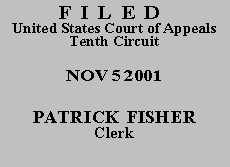

| UNITED STATES OF AMERICA,
Plaintiff-Appellee, v. DERRION WONE ANDERSON, Defendant-Appellant. |
|
Defendant Derrion Wone Anderson pled guilty to count one of a multi-count indictment, conspiracy to distribute cocaine base in violation of 21 U.S.C. §§ 841(a)(1) and 846. At sentencing, the government agreed that under Apprendi v. New Jersey, 530 U.S. 466 (2000), the statutory maximum sentence and the limit of the sentencing guideline range was 240 months. See 21 U.S.C. §§ 841(b)(1)(C) (providing that the maximum penalty available for a cocaine conspiracy that does not involve a specified amount of cocaine is twenty years (240 months)). The district court applied a downward departure based on the defendant's substantial assistance, see USSG § 5K1.1, and sentenced defendant to 120 months' imprisonment.
On appeal, counsel for defendant has filed a brief pursuant to Anders v. California, 386 U.S. 738 (1967), indicating her belief that the record contains no meritorious issues for appeal. Defense counsel has also filed a motion requesting leave to withdraw as counsel, stating her belief that the issues raised on appeal are frivolous. As required, a copy of counsel's Anders brief and motion to withdraw were provided to defendant, see id. at 744, and he filed a pro se brief, raising, without analysis or discussion, three issues: (1) the sentence imposed exceeded the authorized statutory maximum; (2) the trial court's "application of the 21 U.S.C. § 841(b)(1)(C) exceeded the 4.9 grams authorized by statute;" and (3) the trial court lacked jurisdiction to impose a sentence under § 841. Aplt. Objection at 2. Defendant later filed an untimely reply brief elaborating on two of these issues and raising for the first time a new issue, that 21 U.S.C. § 841(b) is unconstitutional.
Pursuant to our duty under Anders, 386 U.S. at 744, we have conducted an independent review of defendant's sentence and we agree that the appeal is frivolous. The United States correctly argues that defendant waived his statutory right to appeal by knowingly and voluntarily waiving that right in his plea agreement. The plea agreement provides in relevant part that defendant waives any right to appeal so long as the sentence imposed is within or below the applicable guideline range. Defendant's waiver of his right to appeal does not apply to appeals or challenges based on changes in the law reflected in this Circuit or Supreme Court cases decided after the date of the plea agreement which are held by this Circuit or the Supreme Court to have retroactive effect.
[A]greements waiving the right to appeal are subject to certain exceptions, including where the agreement was involuntary or unknowing, where the court relied on an impermissible factor such as race, or where the agreement is otherwise unlawful. In addition, a waiver may not be used to preclude appellate review of a sentence that exceeds the statutory maximum or to deny review of a claim that the agreement was entered into with ineffective assistance of counsel.
United States v. Cockerham, 237 F.3d 1179, 1182 (10th Cir.), petition for cert. filed (U.S. July 23, 2001) (No. 01-5462) (quotation and citations omitted).
Our review of the record reveals that defendant entered into the plea agreement waiving his appellate rights knowingly and voluntarily, and, indeed, defendant does not claim that he did not know the terms of his plea agreement or that his plea was unknowing. The sentence imposed was within the applicable guideline range and the district court did not exceed the statutory maximum sentence. Further, none of the issues raised by defendant are based on changes in the law made retroactive by this court or the Supreme Court after the date of the plea agreement.
Accordingly, the appeal waiver is valid and this appeal falls within its plain language. Therefore, we GRANT counsel's request to withdraw and DISMISS the appeal.
Entered for the Court
Chief Judge
*. This order and judgment is not binding precedent, except under the doctrines of law of the case, res judicata, and collateral estoppel. The court generally disfavors the citation of orders and judgments; nevertheless, an order and judgment may be cited under the terms and conditions of 10th Cir. R. 36.3.